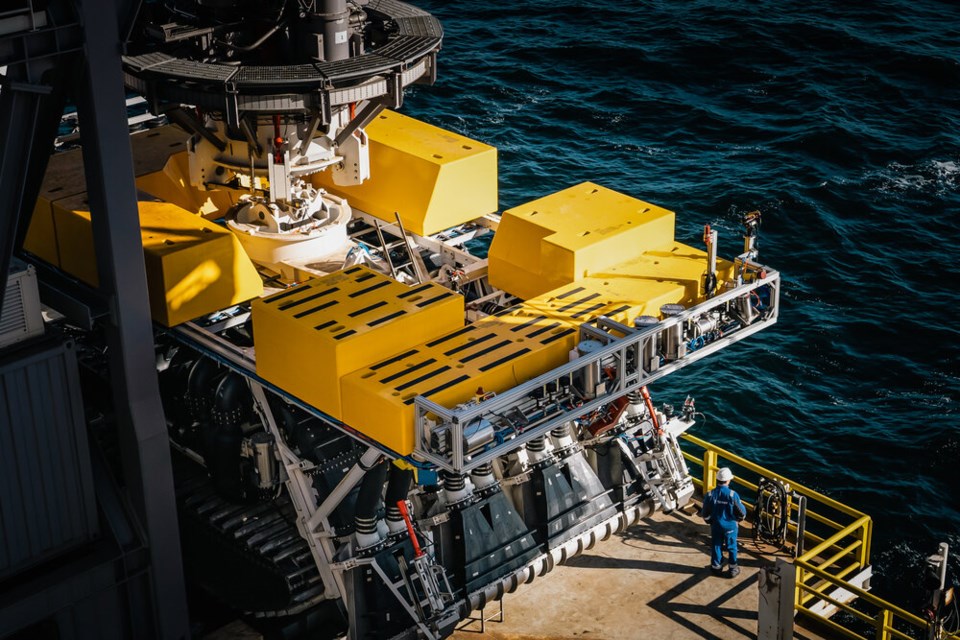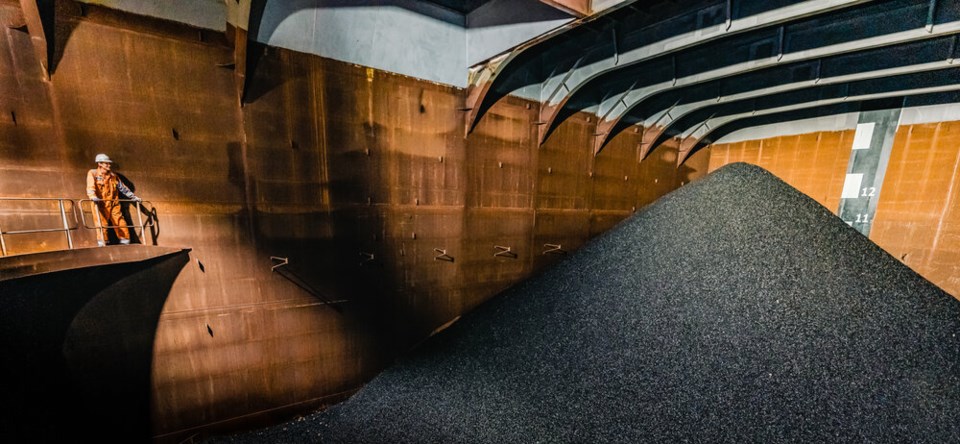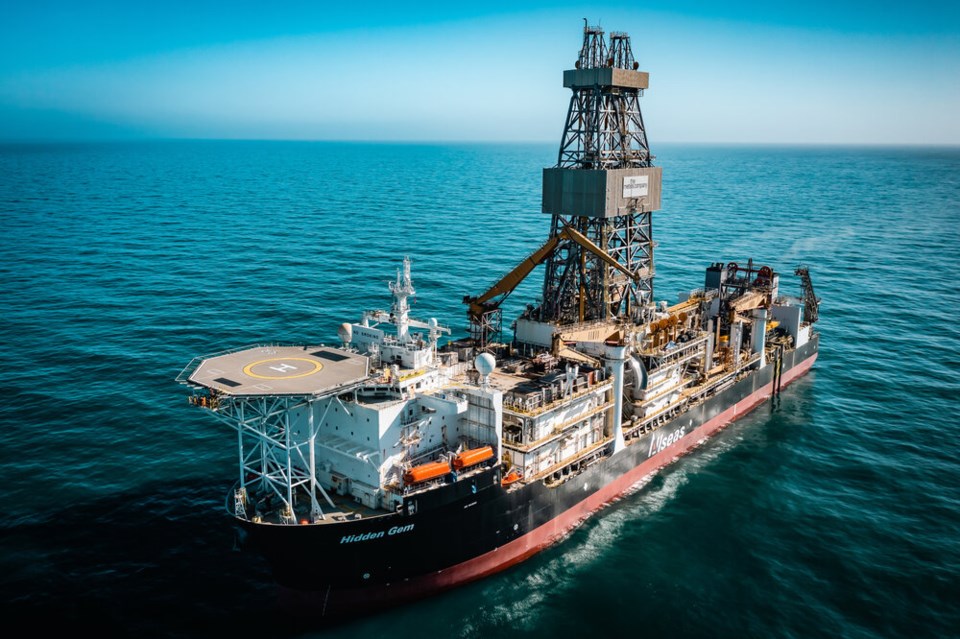The Canadian government says it will back an international moratorium against efforts to open up the deep sea to mining after a Vancouver-based company sparked a process to regulate the industry.
The , made Monday by three senior cabinet ministers, comes nearly five months after sa���ʴ�ý declared an "" on deep sea mining in domestic waters and ahead of three weeks of negotiations in Kingston, Jamaica, where delegates from around the world are hashing out the future of the industry.
Federal fisheries minister Joyce Murray said the decision to back the moratorium was due to a lack of a strong regulatory regime and a poor understanding of the comprehensive impacts seabed mining will have on the environment.
"The protection, conservation, restoration and sustainable use of ocean ecosystems is essential to all life on earth," said federal fisheries minister Joyce Murray in a statement.
Two years ago, The Metals Company partnered with the Pacific island nation of Nauru to submit an application to several kilometres below the ocean's surface between Hawaii and Mexico. That triggered a two-year countdown in which the International Seabed Authority (ISA) — the little-known United Nations body — was required to write the rules of the road for deep sea mining.
The ISA negotiations, which began Monday, could lead to an opening up of seabed mining as early as this year.
“On substance, sa���ʴ�ý is not saying anything new,” said a spokesperson for The Metals Company. “On theatrics, these statements are orchestrated by NGOs who work hard to pin new countries to their ‘rising wave’ picture. They don’t change much what happens on the ground in Kingston.”
The spokesperson added that it is the company’s “strong preference” to submit an application for a mining licence once the regulations are in place. First, the company said it hopes to “set a high bar for this industry” by completing a “high quality comprehensive, science-driven environmental and social impact assessment” on the impact of collecting the nodules.

Over the last two years, leaders of 16 other countries — including Spain, New Zealand, France and Germany — have opposed. They cite scientists and a coalition of opponents who say mining the deep sea threatens to disturb an ecosystem and ocean carbon pump whose workings are little known to humanity.
The Metals Company, meanwhile, has been actively carrying out exploratory mining expeditions to the Clarrio-Clipperton Zone. In this area, polymetallic nodules the size of potatoes were discovered more than 120 years ago.
The nodules form layer by layer over millions of years as dissolved metals precipitate out of seawater around a sunken shark tooth, fossil or shard of rock. The Vancouver-based company says the metals — which include nickel, copper, cobalt and manganese — represent "a battery in a rock" that could provide a stable supply of metals to feed an electric vehicle fleet equivalent to all the cars currently on the road in the United States.

The company is looking to mine the deep sea with robotic vehicles that suck up the nodules off the ocean floor in a process they say will be less damaging than land-based mining.
In the past, collecting and raising them from 4,000 metres under the sea has proven technically challenging and too expensive to conduct commercially. The Metals Company says its latest deep-sea trial shows its technology works.
In the fall of 2022, the company said it had successfully deployed its treaded vehicle in the Pacific's Clarion-Clipperton Fracture Zone, sucking up more than 3,000 tonnes of polymetallic nodules and transporting them up a 4.3-kilometre system of pipes to its mother ship.
But earlier this year, three advocacy groups claimed that The Metals Company appeared to be caught violating its protocols after two videos were leaked purporting to show waste sediment getting dumped into the Pacific Ocean during the expedition.
In a statement to Glacier Media at the time, The Metals Company confirmed the leaked videos captured an incident at sea in October 2022, when a surge of water overwhelmed a machine that separates the deep-sea nodules from sediment, known as a "cyclone separator."
Describing the incident as "a minor overflow," the company said some sediment and fragments of nodules poured out of the separator and over the ship's deck during a seven- to eight-hour test run.
According to company documents, sediment washed from the nodules on the ship is supposed to be returned deep under the sea before it's released. That way, the company says, the risk it threatens marine species is minimized.
But the videos, allegedly captured and leaked by scientists paid by The Metals Company, appear to show the Hidden Gem discharging sediment directly into the ocean's surface.
Based in Vancouver, is looking to be the first to commercially mine the deep sea in a move it says will power an EV revolution.
— Stefan Labbé (@StefanLabbe)
Today, scientists aboard the company's ships leaked videos of deep sea sediment overflowing into the sea.
The latest round of negotiations in Jamaica has also prompted several protests worldwide, with some arriving to the island on ships to oppose the proposed regulatory path.
Greenpeace sa���ʴ�ý, which has a global campaign to stop deep sea mining, lit up a near the Global Affairs building in Ottawa last week.
"Protect my home, Minister Joly!" Reads a cartoon speech bubble emerging from its bulbous head.
The Deep Sea Conservation Coalition, initially created over international concerns over the harmful impacts of deep-sea bottom trawling, says it has sent several representatives to Kingston to lobby members to reject proposals "for the largest mining operation humanity has ever seen."
The organization's policy officer Emma Wilson said while states have been "rushing" to develop and adopt a mining code for two years, "glaring scientific gaps" still exist.
Greenpeace France Oceans campaigner François Chartier, who is also attending the meeting in Jamaica, said the latest pushback against opening up the sea floor to "reckless companies" shows "their bet has backfired."
Editor's note: This story has been updated from its original version with a comment from a spokesperson from The Metals Company.

